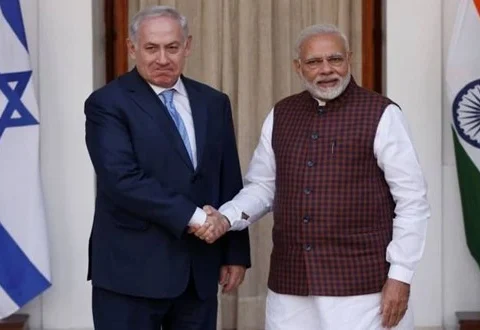US Defence Secretary Pete Hegseth is facing backlash over a new tattoo that reads “kafir” (infidel) in Arabic, a term critics say has been weaponized by far-right Islamophobes.
Key Controversies:
1. The ‘Kafir’ Tattoo & Accusations of Islamophobia
-
Hegseth posted a picture of his new tattoo on his arm, which spells ‘kafir’ in Arabic.
-
Critics, including Palestinian activist Nerdeen Kiswani, claim the tattoo signals anti-Muslim sentiment, especially when combined with his existing ‘Deus Vult’ tattoo—a Crusader battle cry.
-
CAIR (Council on American-Islamic Relations) condemned the tattoo as a symbol of “anti-Muslim hostility”, arguing that it undermines trust in the military, where thousands of Muslim Americans serve.
2. Hegseth’s History of Controversies
-
Past allegations of Islamophobic remarks:
-
A 2015 incident where Hegseth allegedly shouted “kill all Muslims” while drunk in Ohio.
-
His ‘Deus Vult’ and Jerusalem Cross tattoos, symbols that some far-right groups have co-opted.
-
-
The Yemen bombing scandal:
-
Hegseth is under Congressional scrutiny for his role in a Signal leak that exposed US bombing plans in Yemen.
-
Some lawmakers are calling for his resignation.
-
Reactions & Impact:
-
Islamic groups & activists:
-
View the tattoo as a provocation against Muslim communities.
-
Fear it could fuel hostility in US military operations.
-
-
Military & political concerns:
-
Raises questions about whether personal beliefs influence military policies.
-
Could damage US relations with Muslim-majority allies.
-
What’s Next?
-
Will Hegseth address the backlash?
-
Will Congress pursue an investigation into his past remarks and actions?
-
How will this affect US military engagement in the Middle East?
This latest controversy adds to the growing scrutiny over Hegseth’s leadership—and could intensify calls for his resignation.






